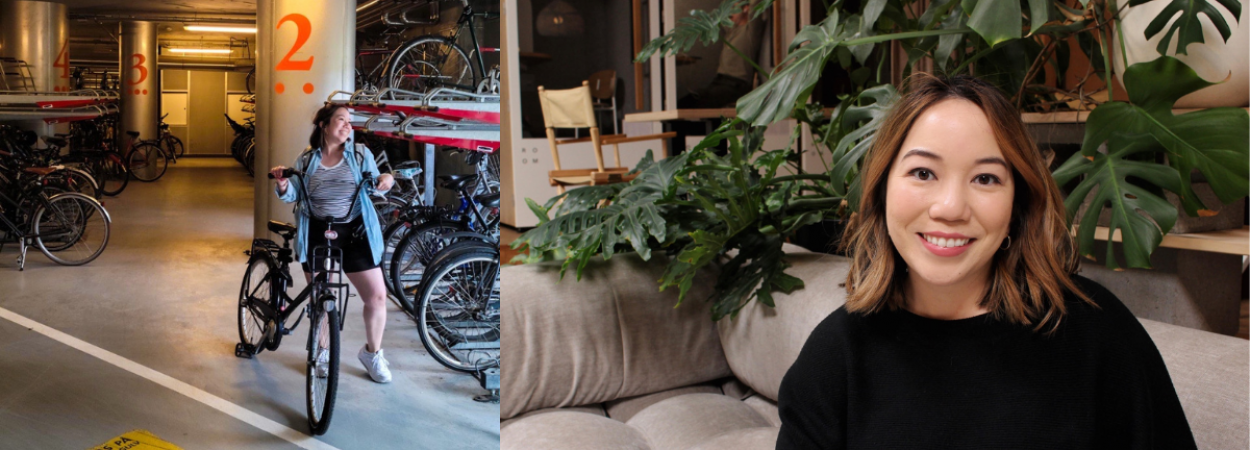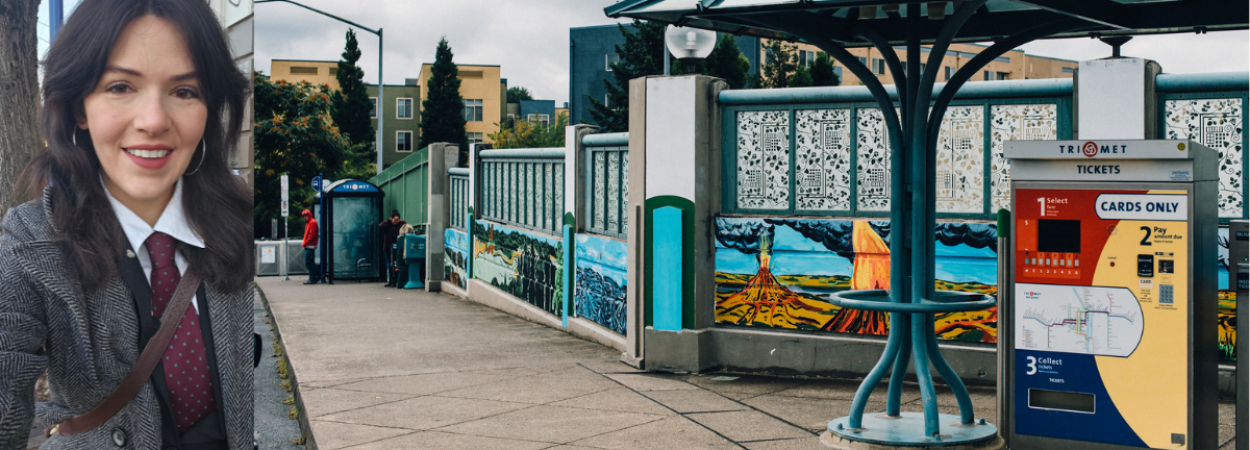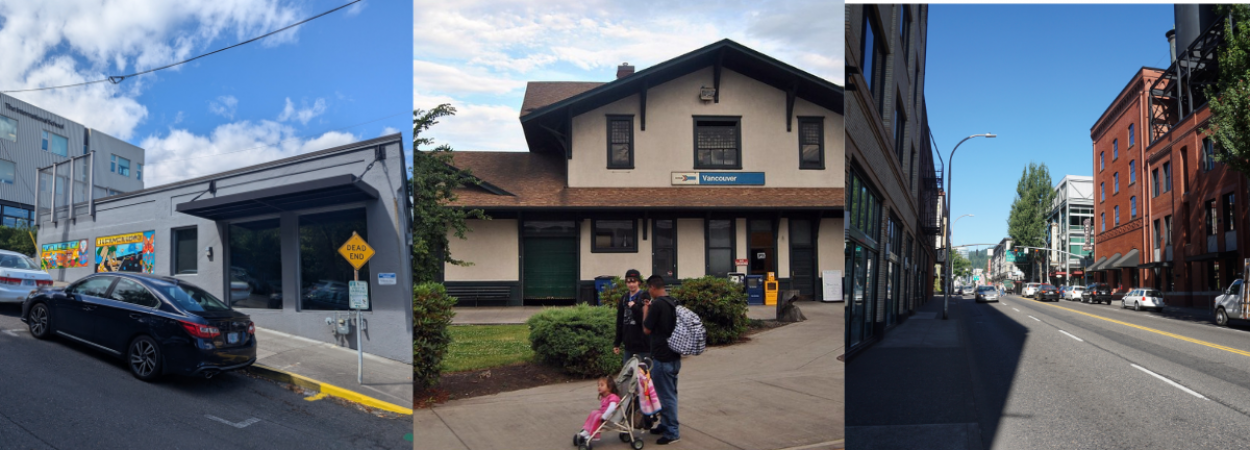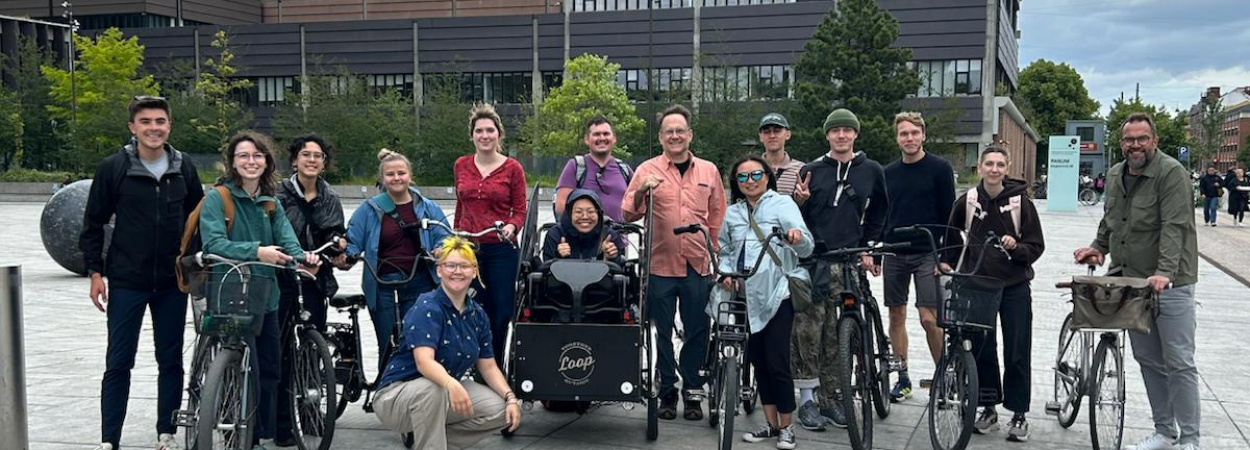 |  |  |

Jamie Arnau graduated from Portland State University (PSU) in 2023 with a Master of Urban and Regional Planning (MURP) degree and an Urban Design Graduate Certificate. While at PSU, she received a National Institute for Transportation and Communities scholarship and attended the annual meeting of the Transportation Research Board (where she scored a selfie with then-Secretary of Transportation Pete Buttigieg!) She is now an Integrated Mobility Consultant at Mobycon.
Connect with Jamie on LinkedIn
I’m an Integrated Mobility Consultant at Mobycon, a Dutch consulting firm with offices in the Netherlands, Canada, Germany, New Zealand, and the U.S. (with our U.S. offic…
Read More
Wildlife everywhere faces a growing challenge: moving safely across an increasingly fragmented landscape. Roads, urban development, and other human-made barriers can make it harder for animals to access food, shelter, and breeding areas, while also increasing the risk of wildlife-vehicle collisions. To address this issue, researchers at Portland State University (PSU) worked on a groundbreaking effort to understand and protect the travel patterns of Oregon’s wildlife.
The Oregon Connectivity Assessment and Mapping Project (OCAMP) was a multi-year collaboration aimed at mapping wild species' habitats and travel corridors across the state. The research team created an interactive Priority Wildlife Connectivity Areas Map of Oregon,…
Read More
Katherine Keeling graduated from Portland State University (PSU) in 2022 with a Master's in civil engineering. She is now a Senior Analyst in Operations & Finance Planning at TriMet.
Connect with Katherine on LinkedIn
I am a Senior Analyst for Operations & Finance Planning. As this title suggests, my main focus is estimating the operations & maintenance costs associated with a change in transit operations. Depending on the impetus, I might be collaborating with transit planners, maintenance experts, executives, or engineering & construction project managers.
I actually keep my PSU transportation engineering notes at my cubicle desk! When I joined a team of analysts, I felt lacking in my understanding…
Read More
Portland State University (PSU) students are once again transforming ideas into action through Better Block PSU, a program that brings community-driven transportation and placemaking projects to life. Three Better Block PSU projects made forward strides this year, thanks to teams of students in the Civil and Environmental Engineering Capstone program and the Master of Urban and Regional Planning (MURP) program.
Last year, we reported on two of the projects:
These two have both made additional forward progress, and we also have updates on…
Read More
The 2025 Portland State University (PSU) Sustainable Transportation Study Abroad class has returned from Denmark, after an immersive exploration of what it takes to build a city for people rather than cars. Through daily bike and transit tours, lectures, and firsthand observations, students learned that making transportation safe and convenient isn’t about one magic policy; it’s a system of integrated decisions—like Copenhagen’s Finger Plan, its cycle superhighways, and a deeply ingrained culture of biking—that together create a vibrant, livable city.
With support from ScanDesign Foundation, the Sustainable Transportation Study Abroad program aims to introduce students to multimodal transportation and land use applications in an international context. This year's cohort of twelve students, along with instructors John MacArthur and Hau Hagedorn, met with officials from transportation organizations like the Danish Road Directorate and consultancy firms Raw Mo…
Read More